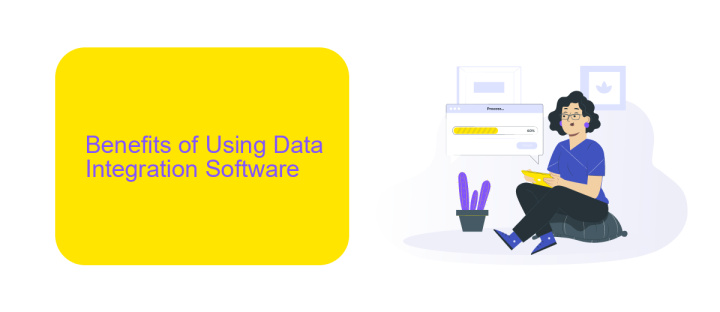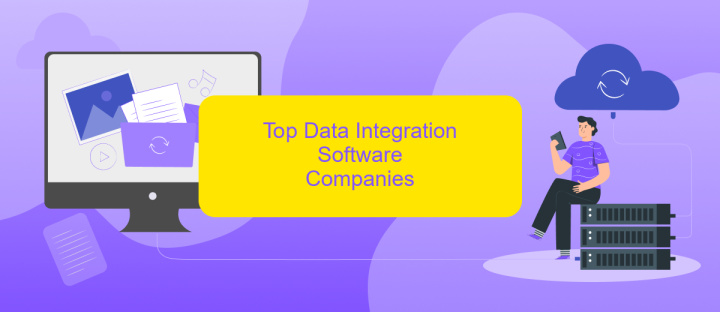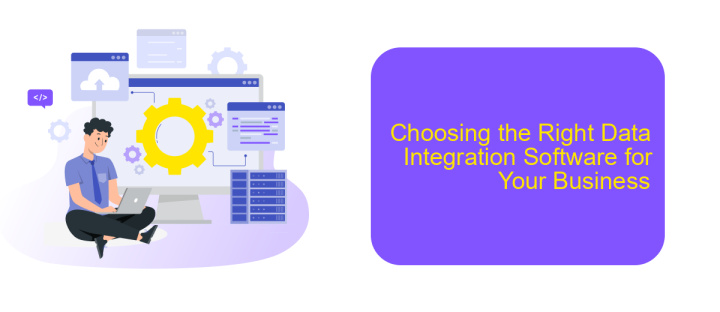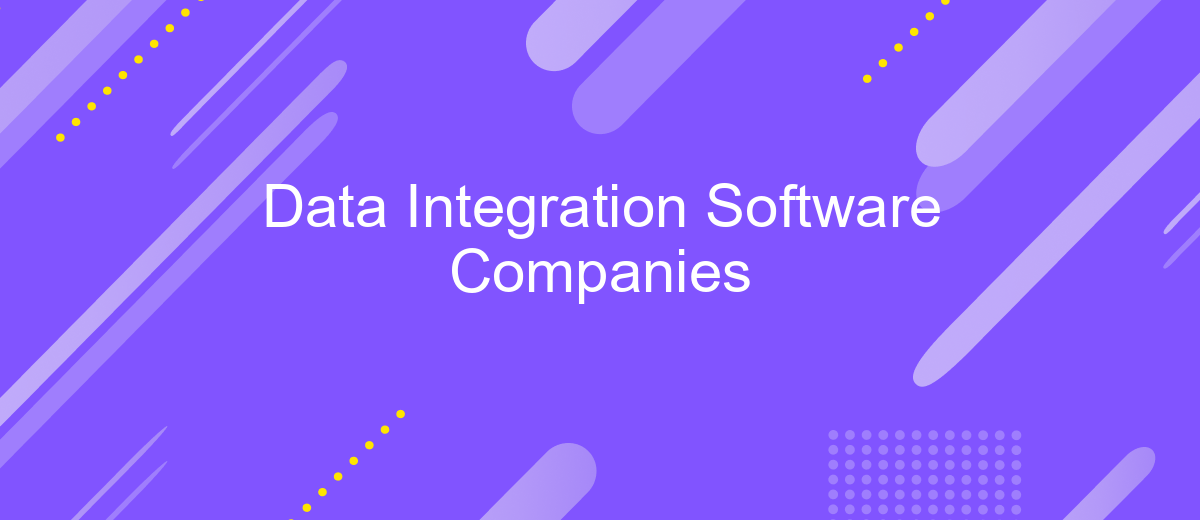Data Integration Software Companies
In today's data-driven world, businesses rely heavily on data integration software to streamline operations, enhance decision-making, and maintain competitive edge. Leading data integration software companies offer robust solutions that seamlessly connect disparate data sources, ensuring accurate, real-time information flow. This article explores the top players in the industry, their innovative technologies, and how they are transforming the landscape of data management.
What is Data Integration Software?
Data integration software is designed to seamlessly combine data from different sources into a unified view, enabling businesses to make more informed decisions. This type of software is essential for organizations that need to manage large volumes of data from various systems, databases, and applications.
- Combines data from multiple sources
- Enables real-time data synchronization
- Ensures data consistency and accuracy
- Facilitates data transformation and cleansing
One of the prominent services in this domain is ApiX-Drive, which helps businesses set up integrations effortlessly. ApiX-Drive allows users to connect various applications and automate data transfer between them, ensuring that data is always up-to-date and consistent. This streamlines workflows and reduces the need for manual data entry, significantly improving efficiency and accuracy.
Benefits of Using Data Integration Software

Using data integration software offers numerous benefits for businesses looking to streamline their operations and enhance data accuracy. By integrating various data sources into a unified system, companies can ensure real-time data availability, which is crucial for informed decision-making. This integration eliminates the need for manual data entry, reducing the likelihood of errors and saving valuable time. Additionally, it enables seamless data flow across departments, fostering better collaboration and improving overall efficiency.
Moreover, data integration software can significantly enhance data security by providing centralized control over data access and monitoring. Tools like ApiX-Drive facilitate easy setup and management of integrations, allowing businesses to connect disparate systems without requiring extensive technical expertise. This not only reduces the implementation time but also lowers operational costs. Ultimately, leveraging data integration software ensures that businesses can maintain data consistency, improve data quality, and drive more strategic insights, leading to a competitive edge in the market.
Top Data Integration Software Companies

Data integration software companies play a crucial role in the modern business landscape by enabling seamless data flow between various systems and applications. These companies offer tools that help organizations consolidate, manage, and analyze data from multiple sources, ensuring data consistency and accessibility.
- Informatica: Known for its robust data integration platform, Informatica provides comprehensive solutions for data management, cloud integration, and big data.
- Talend: Talend offers open-source data integration tools that support big data, cloud, and on-premises environments, making it a versatile choice for many businesses.
- ApiX-Drive: This service specializes in automating integrations between various applications and services, simplifying the process of data synchronization without the need for coding skills.
- Microsoft Azure Data Factory: A cloud-based data integration service, Azure Data Factory enables the creation, scheduling, and orchestration of data workflows across various data stores.
- IBM InfoSphere DataStage: IBM's solution focuses on high-performance data integration, offering advanced features for data transformation and quality management.
Choosing the right data integration software company depends on your specific business needs and technical requirements. Companies like ApiX-Drive stand out for their user-friendly approach to automating integrations, making it easier for businesses to maintain data consistency across platforms.
Choosing the Right Data Integration Software for Your Business

Choosing the right data integration software for your business can significantly impact your operational efficiency and data accuracy. The first step is to identify your specific needs, such as the types of data you need to integrate, the volume of data, and the frequency of updates.
Next, consider the scalability and flexibility of the software. As your business grows, your data integration needs will likely evolve. Look for a solution that can adapt to these changes without requiring a complete overhaul.
- Compatibility with existing systems
- User-friendly interface
- Cost-effectiveness
- Strong customer support
- Security features
For businesses looking for a versatile and easy-to-use solution, ApiX-Drive offers a robust platform for integrating various data sources. With its user-friendly interface and extensive support, ApiX-Drive simplifies the integration process, making it easier for businesses to manage their data efficiently.
- Automate the work of an online store or landing
- Empower through integration
- Don't spend money on programmers and integrators
- Save time by automating routine tasks
Future Trends in Data Integration Software
As the landscape of data integration software continues to evolve, several key trends are emerging that promise to shape the future of this industry. One significant trend is the increasing adoption of artificial intelligence and machine learning technologies to automate and optimize data integration processes. These advanced technologies enable more efficient data mapping, error detection, and real-time data processing, making integration more seamless and reliable.
Another notable trend is the growing importance of low-code and no-code platforms, which empower non-technical users to set up and manage integrations without extensive programming knowledge. Services like ApiX-Drive are leading the way by providing user-friendly interfaces that simplify the integration process, allowing businesses to connect various applications and automate workflows effortlessly. Additionally, the focus on data security and compliance will continue to intensify, with more robust encryption and privacy measures being integrated into data integration solutions to safeguard sensitive information.
FAQ
What is data integration software?
Why is data integration important for businesses?
What types of data sources can be integrated using data integration software?
How can businesses automate data integration processes?
What are some key features to look for in data integration software?
Apix-Drive will help optimize business processes, save you from a lot of routine tasks and unnecessary costs for automation, attracting additional specialists. Try setting up a free test connection with ApiX-Drive and see for yourself. Now you have to think about where to invest the freed time and money!


